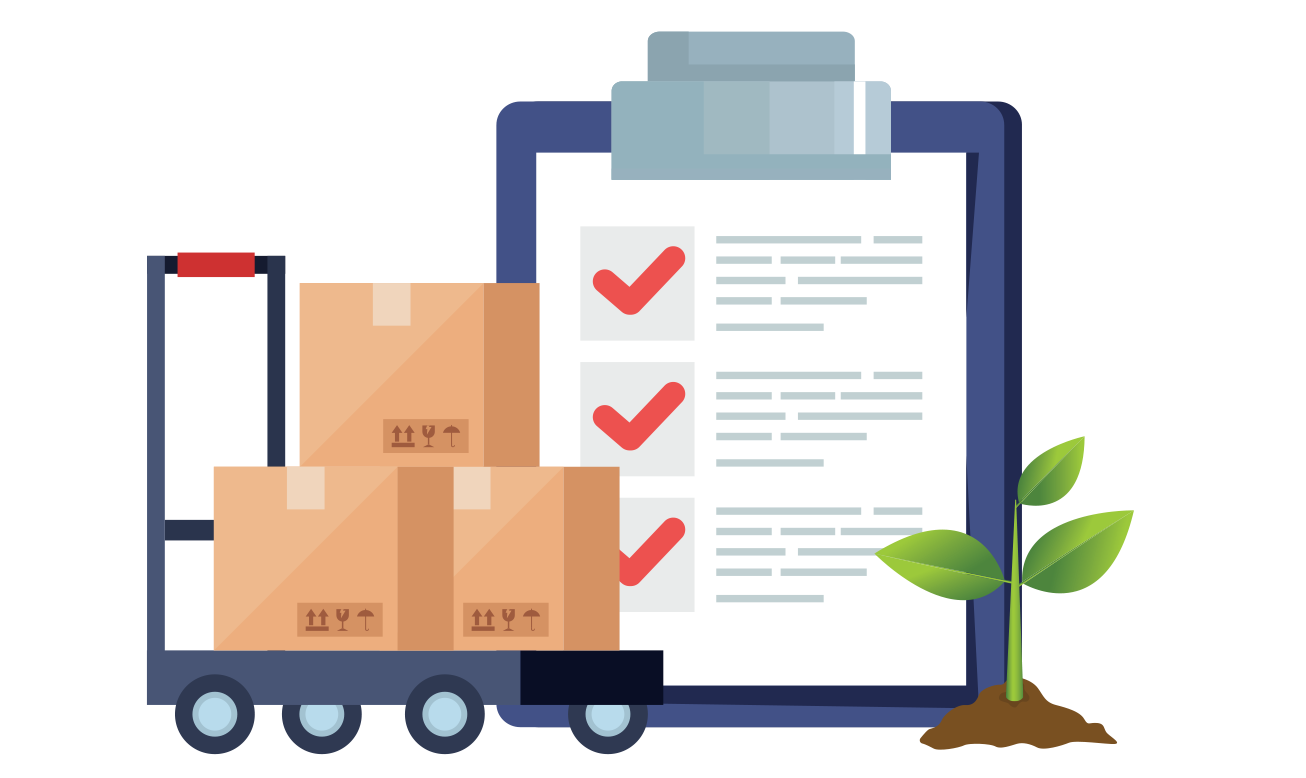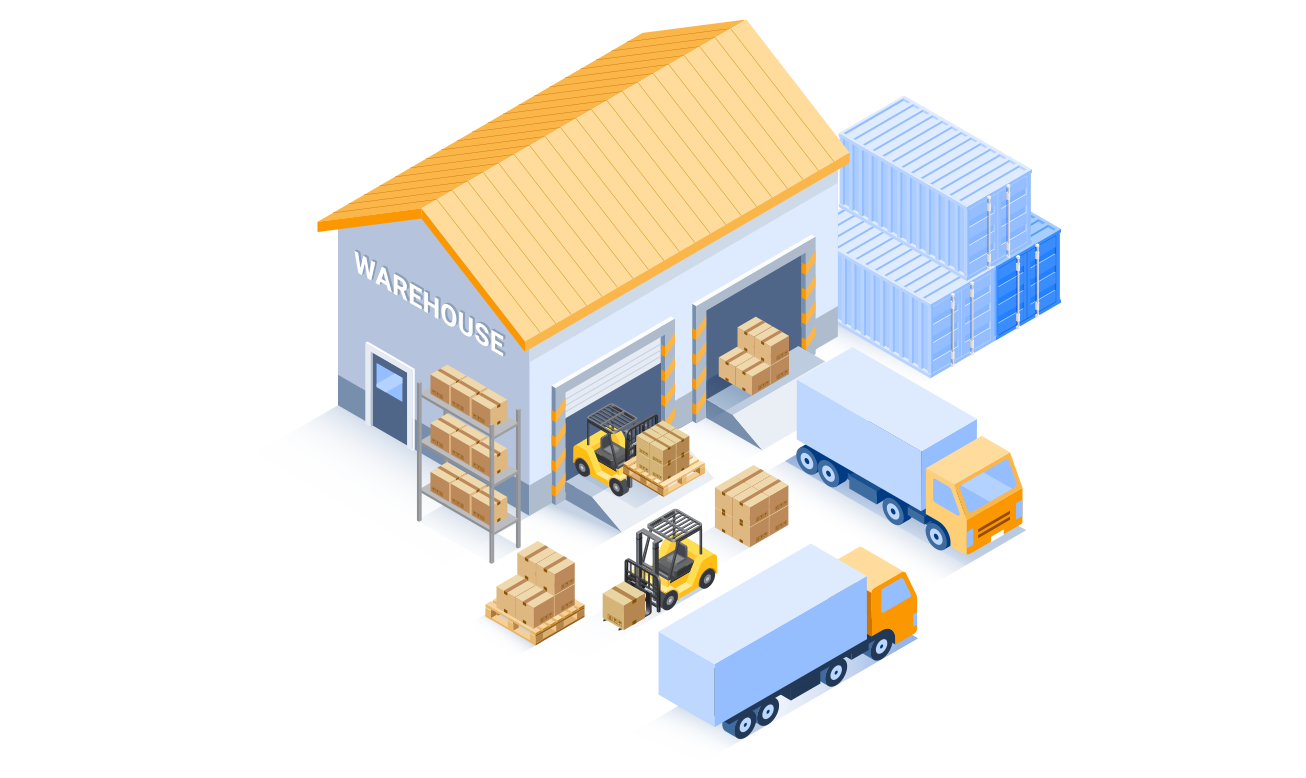June 17, 2024
Five Reasons to Aim for Green Logistics
The logistics industry is experiencing rapid and revolutionizing change, which is the primary reason why businesses are under increasing pressure to switch to environmentally responsible practices. Logistics and supply chain management demand immediate attention in a field where sustainable practices can yield significant benefits. This concept, known as green logistics, encompasses various strategies designed to minimize the environmental footprint of logistics activities, from sourcing raw materials to delivering finished goods to their final destinations.
A Brief History of Green Logistics
The notion of green logistics emerged early in the 1990s as public awareness of environmental issues, particularly global warming, began to rise. This concept was not just a local trend but a global movement as companies and clients alike started to recognize the substantial environmental impact of traditional logistics operations, including high carbon emissions, excessive waste production, and resource insufficiency. This global awareness stimulated the development of more eco-friendly logistics practices.
As businesses across various sectors began to adopt many of these sustainable measures, the concept of green logistics and supply chain management gained traction. Today, sustainability is a fundamental consideration in supply chain strategies, driven by both regulatory pressures and consumer demand for greener products and services.

The Benefits of Green Logistics
Adopting green logistics practices can significantly improve a company’s operations and reputation. Here are five compelling reasons to aim for sustainable logistics:
Environmental Impact Reduction
The primary benefit of green logistics is its positive impact on the environment. Traditional logistics activities, such as transportation, warehousing, and packaging, contribute significantly to greenhouse gas emissions and other pollutants. By establishing and implementing sustainable supply chain practices, a business should be able to reduce its carbon footprint, minimize waste, and economize natural resources.
For example, optimizing transportation routes and using energy-efficient vehicles can significantly cut down fuel consumption and emissions. Additionally, adopting recyclable and biodegradable packaging materials helps reduce waste and pollution. These measures help protect the environment and add to the overall sustainability of the supply chain.
Cost Savings
There is a common misconception that sustainability comes at a higher cost; however, green logistics can lead to substantial cost savings. Efficient logistics and best practices often result in lower operational costs through improved resource utilization and waste reduction. These financial benefits can be a strong motivator for businesses to adopt green logistics, as route optimization and load consolidation can reduce fuel and transportation costs, while energy-efficient warehouses can lower electricity bills.
Non-asset-based carriers (who do not own fleets) can leverage third-party logistics providers to achieve these efficiencies without the massive costs associated with maintaining a bunch of trucks and facilities. This model allows for flexibility and scalability, ensuring that logistics operations are as cost-effective as possible while still being environmentally friendly.
Enhanced Business Repitation
Today, consumers and stakeholders are increasingly valuing companies that prioritize the environment. By adopting green logistics, businesses can enhance their reputation and build a positive brand image. This commitment to sustainability can differentiate a company from its competitors, attracting eco-conscious consumers and investors.
Moreover, transparent communication about sustainable logistics and supply chain practices can strengthen stakeholder trust. Companies that demonstrate their dedication to reducing environmental impact can create long-term loyalty and advocacy among their client base.
Regulatory Compliance
Governments and regulatory bodies around the world are implementing stricter environmental regulations. Businesses that proactively adopt sustainable supply chain practices can ensure proper compliance with these regulations, avoiding potential legal issues. Staying one step ahead of regulatory requirements mitigates these risks and positions companies as industry leaders in sustainability.
For instance, regulations related to emissions standards, waste management, and resource conservation are becoming more stringent. If a business integrates green logistics into its operations, it is better equipped to pass these evolving regulatory compliances.
Operational Efficiency and Innovation
Green logistics encourages companies to rethink and innovate their logistics processes. This drive for innovation can lead to enhanced operational efficiency and the development of new, more sustainable technologies. For example, investing in renewable energy sources for warehouses or exploring alternative fuels for transportation can set a company on the path to long-term sustainability.
Additionally, sustainable supply chain management often involves using cutting-edge technologies such as AI (Artificial Intelligence), IoT (Internet of Things), and big data analytics. These innovations can optimize logistics operations, reduce waste, and improve overall efficiency. By embracing these technologies, companies can achieve both environmental and economic benefits.

The Role of Non-Asset-Based Carriers
Non-asset-based carriers are key players in the logistics sector and play a crucial role in promoting sustainability. These carriers, who do not own transportation assets such as trucks or warehouses, leverage the resources of a trustworthy network of third-party logistics providers to offer flexible and efficient logistics solutions. This model can significantly reduce a company’s carbon footprint by enabling a more efficient use of existing resources.
By partnering with third-party providers who already employ green logistics practices, non-asset-based carriers can offer sustainable solutions without the need for major capital investment in greener technologies. This approach enhances supply chain sustainability and allows businesses to scale their logistics operations based on demand.
Green logistics is no longer a buzzword but a strategic commandment for businesses aiming to thrive in a competitive and environmentally conscious market. By adopting sustainable logistics practices, companies can significantly reduce their environmental impact, achieve cost savings, enhance their reputation, ensure regulatory compliance, and drive operational efficiency and innovation.
At Last Mile Logistics, we see the transition to green logistics and supply chain management as a strategic investment in the future. As consumer expectations evolve and environmental regulations become more stringent, we can help your company embrace sustainability to be better positioned to succeed. We are at the forefront of this transformation, demonstrating that it is possible to achieve both economic and environmental goals. So please call us so we can evaluate your transportation needs.

